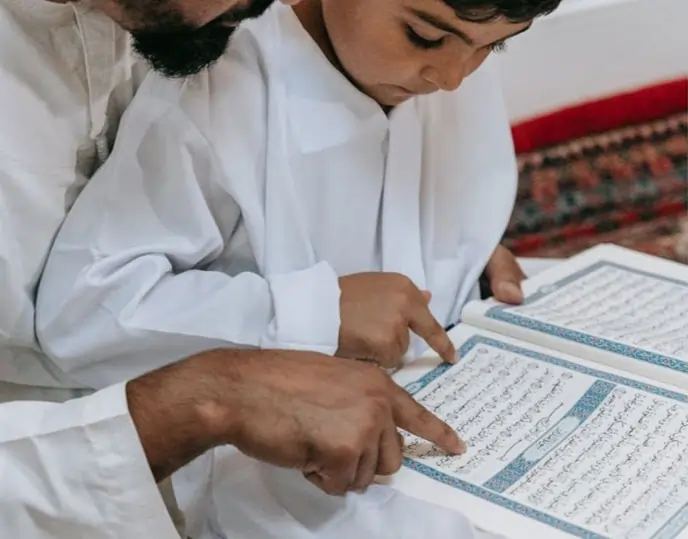There is no greater investment in the future of a child’s spiritual and moral development than in the teaching of Islamic education to them. Parents and teachers may assist youngsters in accepting and implementing into practice. Teachers and parents teach kids about Islam by telling stories, getting them involved in the community, giving them good role models, and getting them to think critically.
Recognizing Islamic Education
Islamic morals are the tenets upon which Muslims are to conduct themselves. They are based on what Muhammad did and said, as described in the Qur’an, the Hadith, and the Sunnah. Among the most central tenets of Islam are:
- Taqwa (religion and respect for God)
- Ihsan (superiority in prayer and deeds)
- The quality of being trustworthy
- The Value of Integrity
- A Generous Spirit
- Honoring one’s elders
- Feelings of empathy
- The Spirit of Giving
The Value of preschool learning
Teaching children Islamic education should begin as soon as possible. Studies show that kids are more open to learning new things and making moral decisions when they are young. Also, a child’s attitude and sense of right and wrong depend a lot on his or her early years. It is during these initial years that a kid is most receptive to and likely to internalize a firm foundation of Islamic principles. Islamic studies for kids classes are the best option for toddlers or kids to learn and follow Islam.
Pros of the Islamic education
Those who choose to follow the teachings of Islam can profit from Islamic education since it attempts to assist them in realizing their full potential. Those who do not choose to follow the teachings of Islam can also benefit from Islamic education. A person’s intellectual, emotional, and physical development can only begin with the foundation that education provides. Because of this, they are able to grow into the most ideal versions of themselves. Implementing the Islamic moral code into daily life is the focus of this effort.
Importance of Islamic schooling on a spiritual level
When children learn about Islam in school, they get a head start on building a strong moral base. Understanding the Islamic religion and its practices can help a person feel closer to God and their spiritual side. Students of Islamic education learn a set of moral and social rules that they can use in all parts of their lives. Honesty, kindness, compassion, and humility are all important parts of Islam.
Awareness of culture
When kids take the time to learn about Islam, they are better able to accept their Muslim identity and feel more connected to the larger Muslim community. Because of this, they may feel more connected to their history and society. Learning about the achievements and cultural traditions of Islamic civilizations is a regular part of Islamic education. This helps people from all walks of life learn about each other’s backgrounds and respect them.
What do you need to know to understand Islam?
Islam teaches that the only way to have real peace of mind and a calm heart is to submit to God and live by His Law, which He has revealed to us. “Muslim” means “one who submits to God’s will,” no matter what race, nationality, or ethnic past they have.
What lessons do Muslims impart to their young kids?
The first principle of Islam states: “There is no God but Allah, and Muhammad is the prophet of Allah.” Muslims believe that Allah is the one who created the world. They follow to the principle that they must submit to his will. Muslims believe that whatever is written in the Quran, which is the holy book of their religion. These are the word of Allah as it was revealed to Muhammad.
What are the five aspects of Islam that are considered to be the most significant?
They include adhering to the religion of Islam, praying five times a day, giving charity to the needy, fasting during the month of Ramadan, and making the Hajj to Mecca for those who are financially able to do so.
Conclusion
It’s important to remember that Islamic education can be done in many different ways, based on culture, location, and the person. Islamic education for kids at a young age lays the foundation for understanding and practicing the faith, instills moral values, and shapes their character. Early exposure to the teachings of the Quran and the life of Prophet Muhammad helps foster a strong spiritual connection and ethical framework. Additionally, it establishes a sense of identity, belonging, and community among young Muslims, promoting a well-rounded development that integrates religious principles with personal growth.
